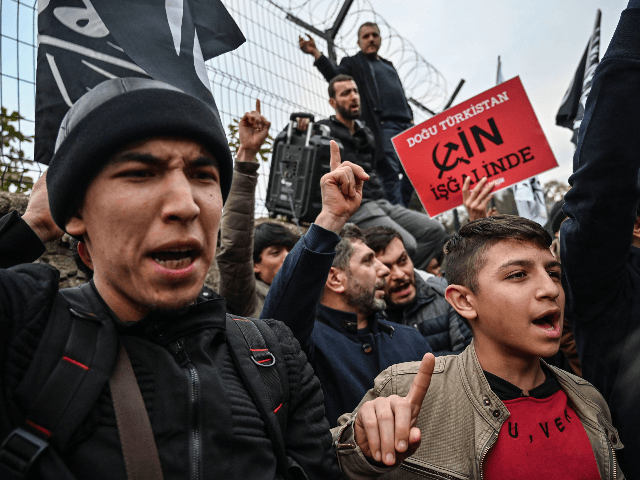People from Kazakhstan whose relatives have disappeared into Chinese concentration camps object to their government’s friendliness with Beijing, Radio Free Europe (RFE) reported on Tuesday.
Thousands of Kazakhs are currently being detained in concentration camps as part of China’s crackdown against ethnic minority Muslims, where they are coerced into renouncing their allegiance to Islam before pledging loyalty to the communist party-state. Uyghur Muslims, the vast majority of which live in western Xinjiang, China, have borne the brunt of Beijing’s genocidal campaign.
Yet despite the repression of its own people, the Kazakh government is prioritizing friendly relations with China over protecting Kazakhs in Xinjiang. In October, Kazakh Foreign Minister Mukhtar Tleuberdi falsely declared that there were “no [ethnic] Kazakhs” in such internment camps, despite widespread evidence to the contrary.
China has repeatedly sought to censor and shut down criticism or acknowledgment of the existence of such camps, where between 1 million to 3 million people are being held. Instead, they have maintained the line that they are “vocational training centers” aimed at reducing religious extremism following a spate of Islamic-inspired terrorist attacks.
According to countless witness testimonies and human rights investigations, the centers more closely resemble concentration camps.
Enraged by this lie, some families contacted Atazhurt Eriktileri (Volunteers of the Fatherland), a human rights group organized by ethnic Kazakhs who moved from Xinjiang as part of a repatriation program after Kazakhstan became independent in 1991, according to RFE.
One of those Kazakhs, Nauatkhan Zhaqyp, told Radio Free Europe how her 30-year-old son, Zheniskhan Zhanbyrbai, a livestock farmer, had been the breadwinner for his family before his sudden disappearance into a “political re-education camp.”
“I came again to tell people about my son. Maybe there is a person who will hear us, understand our feelings,” she said. “He bought us a house and in 2017 went back to China to take care of some business. He disappeared without a trace.”
She explained that it was difficult to extract information from friends and relatives in Xinjiang who themselves feared arrest for speaking out.
“We were able to find out with difficulty that our son had been sentenced to six years,” Zhaqyp said. “Our daughter-in-law and youngest grandson remained in a Chinese village. God only knows how they survive there. The eldest grandson lives with me, he is studying. We live on my Kazakh pension.”
Another individual, Sultan Saulebek, told the U.S.-funded news organization how he moved from Xinjiang to Kazakhstan in 2013, only for his father to be detained and his mother to be placed under house arrest by local police. He has not heard from his father in three years.
“My heart breaks when I think about my father, Sultan Aqyn, and mother, Gulsinai, who remained in the village of Mazar. There is nothing I can do. In 2013, he legally performed the Hajj to Mecca,” Saulebek said. “We believe that the Chinese authorities were attracted to him for this.”
One victim also presented a letter from the Kazakhstani government about the situation, which read, “The Foreign Ministry is working with the Chinese side to objectively examine complaints from Kazakh citizens seeking their relatives living in China. In order to expedite a positive review of the issue, please provide complete information about your relative.”
Follow Ben Kew on Facebook, Twitter at @ben_kew, or email him at bkew@breitbart.com.

COMMENTS
Please let us know if you're having issues with commenting.